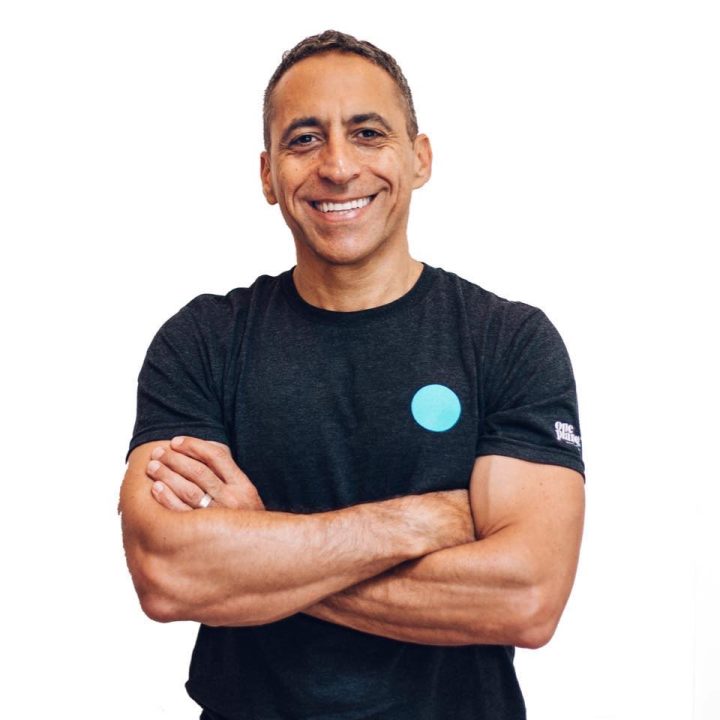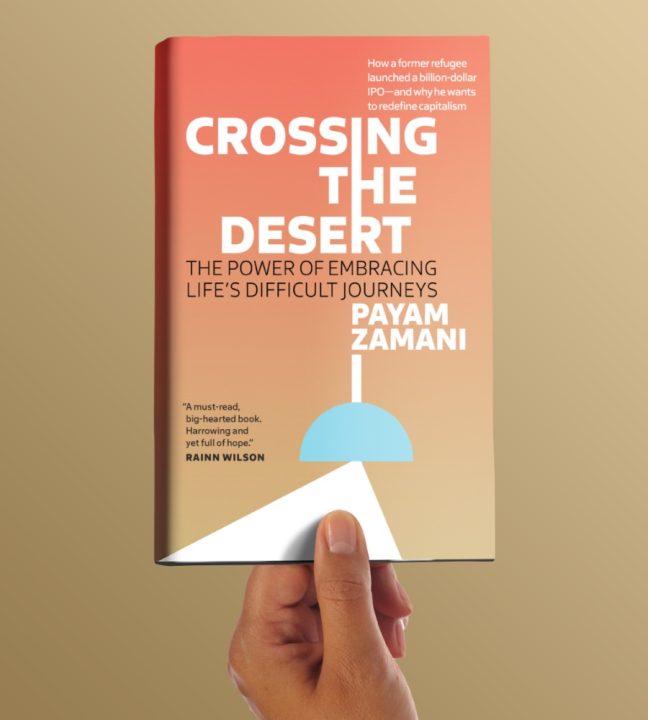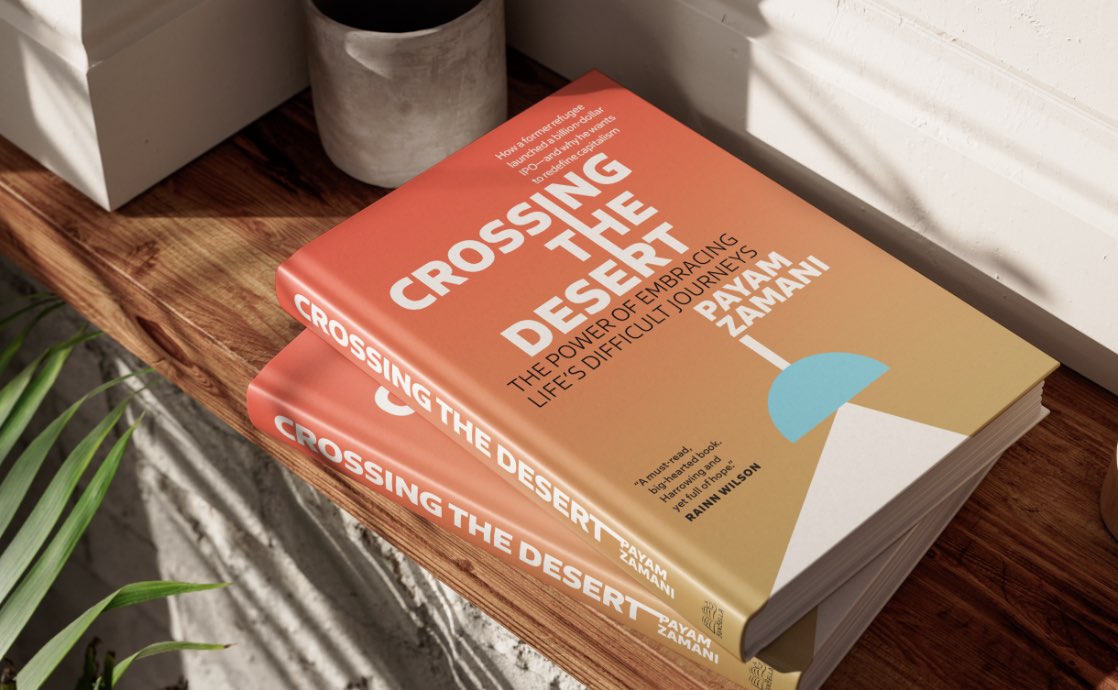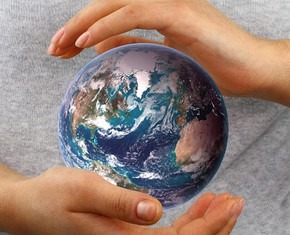The views expressed in our content reflect individual perspectives and do not represent the authoritative views of the Baha'i Faith.
Do you understand what it’s like to lack the legal freedom to express your faith, religion, and spiritual beliefs — enduring harassment, attacks, and the denial of human rights, such as access to higher education, solely because you are a religious minority? Payam Zamani does, and he is now sharing his story with the world.
In his new book, “Crossing the Desert: The Power of Embracing Life’s Difficult Journeys,” Payam Zamani, an entrepreneur, philanthropist, investor, and co-founder of BahaiTeachings.org, offers an inside look into the religious persecution of the Baha’is in Iran — Iran’s largest non-Muslim religious minority.

The Baha’i Faith is a world religion that centers around oneness — one God, one human race, and one unfolding revelation. Baha’u’llah is the prophet and founder of the Baha’i Faith. His title in English means “The Glory of God,” and Baha’is believe that His coming was prophesied in many world religions. The Baha’i writings say:
To Israel He was neither more nor less than the incarnation of the ‘Everlasting Father’, the ‘Lord of Hosts’ come down ‘with ten thousands of saints’; to Christendom Christ returned ‘in the glory of the Father’; to Shí’ah Islám the return of the Imám Ḥusayn; to Sunní Islám the descent of the ‘Spirit of God’ (Jesus Christ); to the Zoroastrians the promised Sháh-Bahrám; to the Hindus the reincarnation of Krishna; to the Buddhists the fifth Buddha.
“Of course, speaking of Baha’u’llah and his forerunner, the Bab, as ‘prophets’ strikes some followers of other religions as objectionable, if not blasphemous,” wrote Payam in his book. “This is what makes being [a] Baha’i so dangerous in certain parts of the world—especially in the Middle East, where extremists believe that Muhammad was God’s final prophet and that believing otherwise was an insult worthy of death.”
These Muslim extremists drowned Payam’s maternal grandfather in a river and ran down Payam’s sister with a car, leaving her in a coma until she recovered. They tried to kill Payam when he was in sixth grade. Over the school loudspeakers, one of the teachers announced, “Today, we’re going to get rid of the Baha’is!” As soon as Payam and his Baha’i friend stepped through the gates, a mob of their classmates started spitting and throwing rocks at them.
Payam wrote, “We guarded our heads and tried to walk as fast as we could as some came closer and beat us with sticks, and kicked us, spitting directly in our faces and all over our bodies. One of them picked up a half-broken brick to throw, but he missed and hit one of their own instead.”
Thankfully, both Payam and his friend made it to their homes. When Payam’s parents heard what happened, they asked one of the teachers how they could let that happen to kids. His response was, “Well, we tried to kill them today. On another day, we will. So I encourage you to leave town. Now.”
Payam and his family moved from town to town in Iran. Payam wrote, “The belief that my parents held was that by going to these particular areas and living in a way that showed they were part of a peaceful and progressive religion, one focused on uniting people through love and service, some of the violence and harassment might stop—not only for the Baha’is, but for everyone.”
The Baha’i writings say:
To be a Bahá’í simply means to love all the world; to love humanity and try to serve it; to work for universal peace and universal brotherhood.
Payam continued, “By comparison, during the early days of the Baha’i Faith, in the mid-1800s, nearly twenty thousand Baha’is were killed in Iran—just for believing as they believed. …No religion has come about without sacrifice.”
It would take years before each member of Payam’s immediate family decided to escape Iran and make the difficult and dangerous journey across the desert in pursuit of a better life. Although this autobiography details his early traumatic experiences, his goal is “to show how every one of us can learn from the challenges we face, and then act—as individuals, as communities, as companies, as countries, as part of humanity itself—in order to help make life better for us all.”

Read “Crossing the Desert: The Power of Embracing Life’s Difficult Journeys” to learn about Payam’s upbringing in Iran, his journey to the United States, his entrepreneurial success that led him to be one of the “Top 30 Under 30” wealthiest people in the country in 1999, and his efforts to infuse spirituality into business.
Payam wrote, “The entirety of my life’s journey led me to where I am today: to a belief that capitalism needs to change. Together, we can learn from the triumphs and woes of our past and present in order to create a system that will allow our economic life to be an inseparable part of our service life.”
Click here to preorder his book now.
















Comments
Sign in or create an account
Continue with Googleor